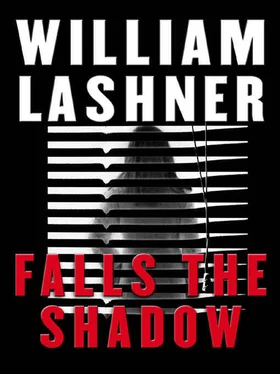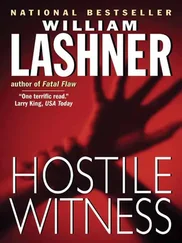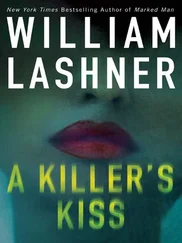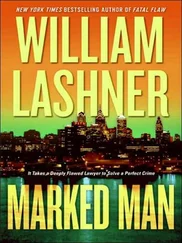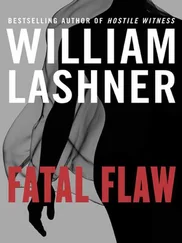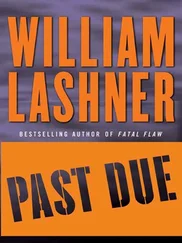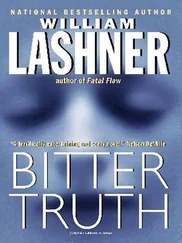“You make an appointment?”
“As a matter of fact. He seems quite competent, and I heard he has gentle hands. Of course, it turns out he also has an alibi for the night of the murder.”
“Of course he does,” I said. “You check it out?”
“It holds,” he said. “He was with someone the entire night.”
“Dr. Bob, that dog,” I said, shaking my head. “Who would have figured? You mind telling me whom he was with?”
“Confidentiality prohibits it, but let’s just say he had his hands full.”
“Got you.” Tilda. Oof.
“So that’s that, right?” said Torricelli.
“I suppose.”
“And we can forgo all the dental crap in this trial?”
“I don’t think so.”
“Carl, you know what you are? Vexing. You are one vexing son of a bitch.”
“Thank you, Detective. Can I make one suggestion?”
“Go ahead.”
“Before you sit in Dr. Pfeffer’s chair, you might want to check out his diploma. There’s a little smudge where his name is. Turns out he wasn’t born a Pfeffer. Before you let him reach into your mouth, I suggest you find out why he changed his name.”
I might beweep a bit too much my outcast state, but there are admitted joys in this job. Chief among them is cashing a retainer check. I also like cross-examining fools, reading deposition transcripts – that’s a little sick, I know, but there it is – and instructing my secretary to hold all calls. I especially like the way people recoil when I tell them I’m a lawyer. Try it sometime at a party or on the street, tell someone you’re a lawyer and watch as they dance away. It almost makes me want to sign up to work for the IRS. And it was a joy just then, let me tell you, when I told Detective Torricelli that his new dentist, Dr. Pfeffer, had doctored his diploma and changed his name for some unknown reason, and then watched as Torricelli’s eyes boggled and he nervously rubbed his tongue across his teeth.
“Call your first witness, Mr. Carl,” said the judge.
“Your Honor, the defense calls Arthur Gullicksen.”
Arthur Gullicksen approached the stand wearing an expensive gray suit, black loafers with tassels, and a fine head of gray hair sleeked neatly back. In fact, sleek was exactly the word for him, his trim figure, his polished nails and sharp teeth, the way his face came to a razor’s edge at the front. You might remember the name Gullicksen, he was Leesa Dubé’s divorce attorney, whom we had tried to keep off the stand during the prosecution’s case. Now he was our first witness. Funny how things change. To see Gullicksen in the flesh was to open once again the eternal debate of nature versus nurture. Are lawyers that look like Gullicksen attracted to matrimonial law, or is it the job itself that turns them into such repulsive specimens?
As Gullicksen sat on the witness stand, he pulled out his cuffs, smoothed his jacket sleeves, adjusted his tie so it sat neatly between the points of his collar. His yellow tie. The very same tie I now was wearing. Would the humiliation over my neckwear never cease?
“Thank you for coming back, Mr. Gullicksen. I have only a few questions. You testified before that you were Mrs. Dubé’s divorce attorney, is that right?”
“That’s correct,” he said while examining his manicure.
“How was it going?”
“Excuse me?”
“The case. From the pleadings you put into evidence in your prior testimony, it is apparent that you and Mrs. Dubé were fighting for custody of the daughter, you were fighting for a lion’s share of the matrimonial assets, including a piece of François Dubé’s restaurant, and you were fighting for a substantial amount in child support and alimony.”
“We were only seeking what she was entitled to.”
“Fine, we’re not going to dispute any of that here. But what I want to know, Mr. Gullicksen, is how was your case proceeding? Did it look like you were going to be successful on all those requests?”
“It is hard to say.”
“Try, Mr. Gullicksen. Let’s take the child-custody issue. You alleged physical abuse of Mrs. Dubé and Amber Dubé at the hands of the defendant. What kind of evidence did you have for that?”
“Leesa Dubé was prepared to testify.”
“But you had no other witness, did you?”
“Leesa had told her friends of the abuse.”
“That was hearsay, and so not admissible. And the pediatrician, as we’ve heard already from Detective Torricelli, saw no indications of abuse. Did you have any other witnesses or admissible evidence on the abuse issue?”
“Not at that point, but I was looking for others.”
“Now, in his responsive pleadings, Mr. Dubé alleged that his wife was addicted to painkillers, often dumped her daughter at her mother’s house while she went on unexplained trips out of town, and was in many ways an unfit mother, isn’t that right?”
“Those were his allegations.”
“Did he have witnesses to back up those allegations?”
“He claimed he did.”
“You depose them?”
“Some of them, yes.”
“How’d the depositions go?”
“There were avenues to discredit the testimony.”
“I’ve been a lawyer long enough to interpret that. The testimony was pretty strong, wasn’t it?”
“It had some strength to it, yes.”
“Mr. Gullicksen, in your opinion was there a chance that Leesa would lose custody?”
“Objection as to relevance of the witness’s opinion,” said Mia Dalton.
“Mr. Carl? Is this whole line of questioning relevant?”
“Yes, Your Honor. I ask for some leeway here. I am not attempting to try the divorce case in this courtroom. But I do think it extremely relevant what Leesa Dubé’s lawyer thought of the case and what Mrs. Dubé thought of her chances in turn. Her fear of losing her child is at the heart of our defense.”
“Go ahead, then, but be careful.”
“Thank you, Your Honor. Mr. Gullicksen, was there a chance that Leesa would lose custody?”
“Yes.”
“A pretty good chance?”
“A more-than-negligible chance.”
“And as per the ethical requirements of the Bar Association, you relayed that to your client?”
“I did.”
“How did she take it?”
“I can’t disclose anything she told me.”
“Of course not, but you can tell us her state of mind. How did she take the very real possibility of losing custody of her daughter, Amber, to the defendant?”
“Not well.”
“How about the money stuff? How was that looking?”
“There was going to be some alimony, absolutely. I was convinced we could get a significant amount of Mr. Dubé’s income, but, unfortunately, that income was limited. Child support depended on the custody issue, so that, too, was in doubt. And our investigation showed that there was really no equity in the restaurant, due to the financial structure of the business. So there was a chance that Leesa might have ended up with very little.”
“And you told her that, too?”
“Of course.”
“How’d she take that?”
Gullicksen smoothed back his hair. “Divorce is a very difficult time for all the parties.”
“She was upset?”
“You could say that.”
“Distraught at the possibilities?”
“If you choose to be dramatic about it, yes.”
“What would have helped, Mr. Gullicksen? How could she have improved the outlook of her case?”
“A divorce case is like every other type of trial. The quality of the lawyers is important, that’s why I get paid, but by and large it depends on the evidence.”
“So what she needed was more and better evidence, is that right?”
“Yes.”
“And you told that to Mrs. Dubé?”
“Yes, I did.”
Читать дальше
